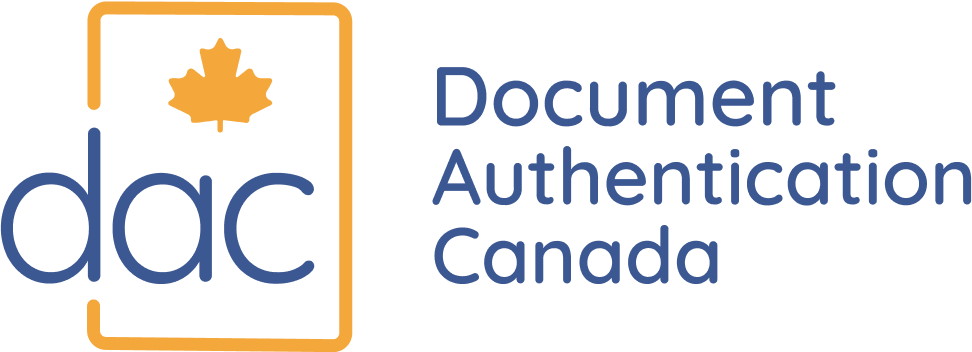Notarized and Apostilled Document
Apostille your Canadian documents with the only company that provides:
- Fast Apostille service → 1-3 days
- Easy to follow process with up to date step-by-step document tracking
- Great prices starting at just $90




Free Expert Document Review
How to get a notarized and legalized document?
When a Notary Public signs and stamps a document, that document becomes a notarized document. The signature and stamp certify that the notary witnessed the signature that appears on the document or that they made a certified true copy of an original document.
Since it is difficult to confirm the authenticity of a document issued abroad, many countries ask for personal and commercial documents to be notarized and legalized (or apostilled) before they are accepted for use.
In this guide we’ll go over the notarization and Apostille process in Canada and the steps you should follow for your documents to be recognized abroad.
What is a notarized document?
Notarized meaning: A notarized document is a document that has been certified by a notary public. The notary public witnesses the signing of the document and records it. By doing so, the notary verifies the document’s authenticity. Documents dealing with important financial and legal matters often require notarization to be valid.
It’s important to note that the notary will not give you legal advice on what you’re signing up for. Their role is to verify who signed the document and when.
You can obtain a notarization at financial institutions, law firms, postal offices, or through individual providers, provided Global Affairs Canada has a copy of the signature and stamp of the Notary Public on file. Without this requirement, many documents cannot be aspotilled.
You can view a sample notarized document Ontario here and notarized document templates here.
What is an Apostille?
As of January 2024, the document authentication and legalization process in Canada was replaced by an Apostille.
An Apostille is a certificate that authenticates the origin of a public document. It certifies the authenticity of the signature or seal of the person or authority that signed or sealed the public document and the capacity in which this was done.
To request an Apostille, you must first get the document notarized and translated (if needed) and then submit your document to Global Affairs Canada or a competent provincial authority.
Countries that have not signed the Apostille Convention still follow the document authentication and legalization process, so some countries may request that you legalize your documents.
A legalization stamp makes a document valid for use in another country. Legalization provides proof that the document was issued by an official authority, and that the signature seal and/or stamp are genuine.
Legalization does not confirm that the document’s content is correct. The authority requesting the legalized document should do the necessary checks.
Legalizations are done by Embassies or Consulates after an entity in the country where the document was issued authenticates your document. A legalization stamp is only valid in the country where the stamp was issued. As an example, if you get your document legalized by the Embassy of Italy, that document will only be valid in Italy. To use it in another country, you must obtain an additional legalization stamp from that country’s embassy.
The section below goes into the Canadian process in more detail.
Notarization and Apostille: The Process
To notarize and apostille a document, you must follow a two-step process:
- You have to prepare your documents for an apostille, and this may itself require two steps: notarization and a translation.
- Global Affairs Canada, or competent authorities in Alberta, British Columbia, Ontario, Quebec, and Saskatchewan authenticate (apostille) the document.
Let’s go into each of these steps in more detail.
1- How to notarize a document – Where to find a notary
The first step is to check if your document must indeed be notarized. You can check if your document requires a notarization on this page.
If your document must be notarized, you will need to find a Canadian notary whose signature is recognized by Global Affairs Canada. Google “public notary” to find a notary close to you.
To sign your document, the notary must have a valid certificate of appointment. They should also follow the instructions provided by Global Affairs Canada, namely to:
- Handwrite their signature in ink
- Apply a stamp or seal showing their full name as it appears on their certificate of appointment and the Canadian province or territory in which they have been appointed
- Indicate the act they performed (certify that a document is a true copy of the original; received a declaration or affidavit; witnessed a signature)
- Indicate the date on which they notarized the document
- If applicable – indicate the date on which their appointment as a notary expires
In the case of a translated document, the notary may also be able to certify a translation as true, provided they speak both languages.
To notarize your document, the notary signs and applies a seal to your document. They can also prepare a separate certificate which they sign and attach to your document. If your notary also certified a translation they must attest to speaking both languages and certify the accuracy of the translation.
To get a notarization, you must present your official identification (such as a driver’s license, passport, or other government-issued ID) to prove your identity. Do not sign your document in advance as the notary has to witness the signing (unless it’s a certified true copy of an original in which case there’s nothing to sign). Chances are you will be asked to pay a fee to cover the notarial service.
2- How to submit a notarized document for Canada Apostille
Send your request for an Apostille certificate to Global Affairs Canada or a competent provincial authority, as follows:
Global Affairs Canada accepts documents issued by the Government of Canada and documents issued or notarized in Manitoba, New Brunswick, Newfoundland and Labrador, Northwest Territories, Nova Scotia, Nunavut, Prince Edward Island, and Yukon. If your document was notarized in a province or territory listed above, you will send it to Global Affairs Canada regardless of where it was issued.
Competent authorities in Alberta, British Columbia, Ontario, Quebec, and Saskatchewan are responsible for issuing apostilles for documents issued or notarized in their respective province.
If your document was notarized in Alberta, Ontario, or Saskatchewan, you will send it to that province’s competent authority, regardless of where your document was issued. In British Columbia and Quebec, the competent authority can authenticate a notarized document only if the original document was issued in the province.
You can view a list of provincial competent authorities here.
Generally, Global Affairs Canada and provincial authorities will not authenticate a document that:
- Does not have an original signature or seal
- Has a signature or seal that’s not verifiable
- Has been issued by religious organizations
- Was not issued in Canada
- Was issued by unrecognized educational institutions
- Is glued or laminated
- Is covered in a substance that makes it difficult to stamp
To submit your notarized document to Global Affairs Canada:
- Fill in the authentication request form
- Add the document you need an Apostille for
- Include a self-addressed stamped envelope or a prepaid courier shipping label
- Send your documents to the Global Affairs Canada address:
Global Affairs Canada
Authentication Services Section (JLAC)
125 Sussex Drive
Ottawa, ON K1A 0G2
Canada
In case of any questions, you can also call the Global Affairs Canada authentication services phone number: 1-833-928-1551. In-person visits are not possible at the moment.
At Document Authentication Canada, we can help you determine what’s needed for each specific document so that your request will not be turned down and lead to unnecessary delays. We have the expertise to complete the entire apostille process on your behalf, saving you time and money.
Our simple 4-step process helps you authenticate and legalize your Canadian documents in a fast & easy manner.
-
1
Request A Quote From Us -
2
Send Us Your Documents -
3
Let Us Process Your Documents -
4
Receive Your Documents
Start by calling us at 1-855-700-5840 or requesting a quote online. We’ll get back to you in 1 hour.
Not sure if your documents meet the requirements for an apostille (or authentication and legalization)? 👇
Reach out to our experts and receive a Free Document Evaluation.
Once you receive a quote and select a time frame that works best for you. We’ll provide you with a final price and help you prepare your documents. When your ready ship your documents to our office in Ottawa: 1103-467 Laurier West, Avenue Ottawa, Ontario, Canada, K1R 5C7.
We recommend that you use a secure, prepaid and tracked courier service for sending your documents.
Have any questions? Feel free to call us at 1-855-700-5840
After receiving your documents we will take care of the rest. We will make sure your documents get authenticated within your requested time frame.
Want to stay updated throughout the whole process?
Check out Document Authentication Canada’s Document Tracking System.
…and that’s it! After completing the document Apostille process, we will send your documents using the shipping method of your choice.
Remember: With Document Authentication Canada you only pay at the end, once your documents have been completely apostilled (or authenticated and legalized).
Common Questions about Document Notarization and Apostille
How to get something notarized?
To get your document notarized, you must visit a Canadian public notary. A notary public can notarize and commission affidavits, oaths, affirmations and sworn statements declarations and certify true copies of a wide range of documents.
If you’re using your notarized document abroad, it’s important that you work with a notary public whose signature is registered with Global Affairs Canada.
A notary will:
- Verify your identity
- Ensure you’re a willing signer
- Ensure that you’re capable of making decisions and signing the document
In case of copies of original documents – a notary will sign and stamp your document as a ‘certified true copy of the original’.
To get your document notarized:
- Bring your official identity document with you
- Bring your original documents – you should check with the notary if you should send your documents ahead of time to confirm that they can indeed notarize them for you
- Sign and pay the fee
How much does it cost to get a document notarized in Canada?
Who can notarize a document in Ontario for free?
Notaries have expenses to cover so their service is often not free. ServiceOntario provides a list of places where you can find a notary public, but fees may still be charged for the service.
Can I get my document notarized online?
Yes – there are Canadian notaries that offer this service but always ensure that their signature is registered at Global Affairs Canada. Global Affairs Canada does not apostille documents without a recognized signature.
What is the difference between authentication, legalization, attestation and apostille?
Not much, however, submitting one instead of another may prevent your documents from being accepted by the entity that asked for them.
The purpose of each is the same – to let another country know that a document was genuinely obtained. Different countries use different terms to refer to this process.
In an authentication and legalization, the country who issued the document authenticates it and the country where it will be used legalizes it. The legalization is only valid in that country.
If you’re asked to present an apostilled document, it means that the country that is asking has signed The Hague Apostille Convention. Canada is a party to this Convention and can issue Apostille certificates. This process only involves the country that issued the document, and the Apostille certificate is valid in all countries that signed the convention.
Some countries, especially those in the Middle East, ask for an attestation. This refers to the legalization part of the process, in which case you’d still need to submit your documents for authentication in the country they were issued.
How long does it take to notarize and legalize a document?
It shouldn’t take long to obtain a notarization, however, as of February 15, 2024, Global Affairs Canada’s Apostille processing time is 30 business days. This excludes mailing time. The whole process can easily take from 6 to 8 weeks, more if you do not submit the correct documents.
If you prefer to speed up the process, you can choose to outsource your documents to experts who can navigate these steps accurately and efficiently. At Document Authentication Canada, we can get your document notarized and apostilled (or authenticated and legalized), and ready for use abroad quickly. Get in touch with us for a free quote!
How much does it cost to notarize and apostille my Canadian documents?
Notarization fees at Canadian Public Notaries range from $10 to $60 per document, with discounts available for additional documents. Global Affairs Canada does not charge a fee to issue an Apostille certificate. Some Embassies representing countries not party to the Apostille Convention may charge a fee for legalization services.

Free Expert
Document Review!
Quick Canada Document Notarization and Authentication
This guide has provided all you should know about getting a document notarized and apostilled, ready for use abroad.
It’s undoubtedly a long (and oftentimes tiring) process, especially if you’re planning a move or preparing for a new job abroad. At Document Authentication Canada, we facilitate document notarization and Apostille. We navigate through the bureaucracy on your behalf so that you avoid unnecessary delays. Get in touch with our expert team on 1-855-700-5840 to request a quote and a free document evaluation.

Get your documents apostilled now!
Save up to 21 Business days. Request a quote and get a free expert document evaluation today!
